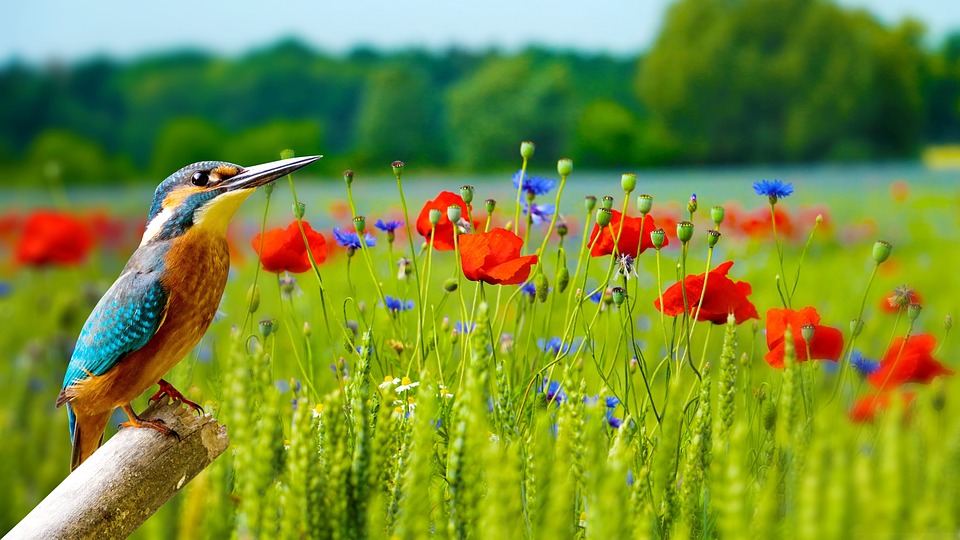Introduction
Creating an outdoor garden filled with native plants can be a rewarding and beautiful experience. Native plants are species that naturally occur in a particular region and have adapted to the local climate, soil conditions, and wildlife.
By incorporating native plants into your garden, not only will you enhance the natural beauty of your outdoor space, but you will also support local ecosystems and promote biodiversity.
In this article, we will explore the beauty of native plants and discuss how they can transform your garden.
The Benefits of Native Plants
Native plants have numerous benefits that make them a fantastic choice for your outdoor garden:
- Low Maintenance: Native plants have evolved to thrive in local environmental conditions, making them more resistant to pests, diseases, and drought. This means less effort and resources needed for maintenance.
- Eco-Friendly: Using native plants reduces the need for chemical fertilizers, pesticides, and excessive watering. They require less intervention, resulting in a more sustainable and environmentally friendly garden.
- Biodiversity: Native plants provide food and habitat for local wildlife, including birds, bees, butterflies, and other beneficial insects. By planting native species, you can attract a diverse array of wildlife that will contribute to a healthy ecosystem.
- Adaptability: Native plants are adapted to the local climate, which means they can better withstand temperature extremes and seasonal changes. They are more likely to thrive and survive in your garden, even during harsh conditions.
Choosing the Right Native Plants
When selecting native plants for your outdoor garden, consider the following factors:
- Native Range: Research which plants are native to your specific region. Consider the soils, sunlight, and moisture conditions in your garden to ensure a successful and harmonious growing environment.
- Attractiveness: Native plants come in various sizes, colors, and textures. Choose plants that complement your personal aesthetic taste and design goals.
- Seasonal Interest: Consider plants that provide year-round interest, including beautiful blooms, striking fall foliage, or interesting textures in winter. This will ensure your garden remains visually appealing throughout the year.
- Ecological Value: Some native plants have specific ecological benefits, such as attracting pollinators or providing food and shelter for local wildlife. Choose plants that contribute to the overall health and balance of your local ecosystem.
Planting and Caring for Native Plants
Once you have selected your native plants, follow these steps to successfully incorporate them into your garden:
- Prepare the soil by removing weeds, loosening the soil, and incorporating organic matter.
- Plant the native species at the appropriate depth and spacing, following the instructions provided for each plant.
- Water the plants thoroughly after planting to ensure proper establishment.
- Mulch around the plants to conserve moisture and suppress weed growth.
- Monitor the plants regularly, providing adequate irrigation during dry periods and ensuring weeds are kept under control.
- Prune and fertilize as necessary, following specific care instructions for each plant.
FAQs Section
What are the best native flowers for attracting pollinators?
Some popular native flowers for attracting pollinators include bee balm, purple coneflower, black-eyed susan, and butterfly weed.
How can I encourage birds to visit my native plant garden?
Offer a variety of native plants that provide food sources such as berries, seeds, or nectar. Installing bird feeders and birdhouses in your garden can also attract birds.
Are native plants suitable for small gardens or containers?
Absolutely! Many native plants are perfectly suited for small gardens or containers. Look for compact varieties or consider planting them in pots or raised beds.
Can I find native plants at my local nursery?
Yes, many local nurseries carry a selection of native plants. It’s always recommended to support local nurseries and inquire about their native plant availability.
Should I remove invasive non-native plants from my garden?
It is advisable to remove invasive non-native plants from your garden to prevent them from outcompeting native species and causing ecological imbalances. Replace them with native alternatives for a healthier ecosystem.




